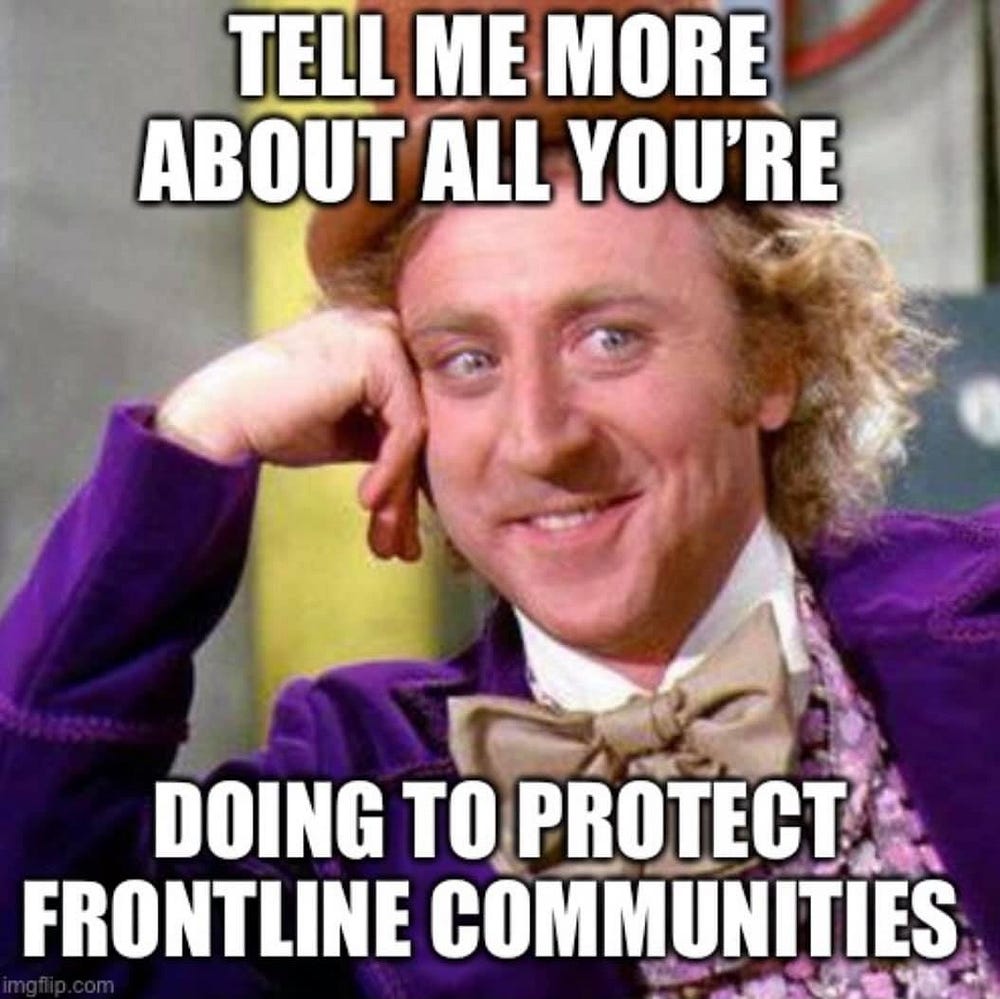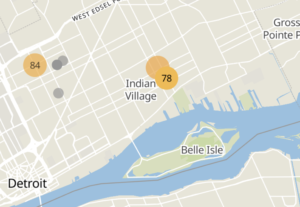I’m attending the 3 day Michigan Environmental Justice Conference hosted by the Michigan Department of Environment, Great Lakes and Energy. I’ve been posting some of my responses and observations here.

There has been a great deal of emphasis on a new data tool from EGLE called the MI EJ Screen. This is a state-based version of the EPAs EJ Screen that provides data on polution, populations and public health. This afternoon I attended a presentation on this technology.
Data tools like the new MI EJ Screen are very impressive for the amount of information that can be accessed and shared. Our community on the East Side of Detroit has used tools like these, the EPA’s EJ screen for example, in our work attempting to address inequities inherent in the new Fiat Chrysler, now Stellantis plant expansion.
We’ve used data collected to make arguments for reduction of emissions, increased monitoring, better buffering, and to make the case for environmental justice at large for our residents who live in the shadow of the first new auto assembly line to be built in Detroit in over 40 years.
Before COVID-19 we were able to share this data and other public health information with our neighbors by attending and hosting regular community meetings, through canvasing and informative flyers that have been well received and increased the awareness of how air quality impacts our quality of life.
Our neighbors have responded by becoming more active, with large numbers attending and speaking out at EGLE public hearings, with the circulation of petitions submitted to local, state and federal representatives, EGLE and Fiat Chrysler themselves. While we do not know the level of engagement with EGLE in the rest of the state we believe that our efforts have dramatically increased participation and advocacy around this project.
While access to data as available through the EJ screen has supported our efforts to increase public education of the impact of pollution on our quality of life and has increased engagement and participation in EGLE’s permitting process it is challenging not to think that it is all in vain based on the outcomes for our neighborhoods.
All of these efforts have been met with a permitting process and with state policy that discards the reality of the data shared and the research done. The decision making conducted by EGLE puts the project seeking a permit in a vacuum that does not and apparently cannot access the data that the MI EJ screen makes available to the public.
Just last week, after two years of hard work by residents struggling to be heard, EGLE approved yet another air quality permit for Fiat Chrysler/Stellantis. They did so without considering resident voice, heart-rending stories shared in public comment, or hearing what it is like to live next to a massive industrial facility already under construction. They did so without recognizing our so-called “frontline” “environmental justice” community that is 90% majority Black and poverty ravaged. Without considering that we were in the midst of multiple public health crises beforeCOVID-19.
The 17 principles of Environmental Justice created by delegates to the First National People of Color Environmental Leadership Summit held in 1991 demands the right to participate as equal partners at every level of decision-making, including needs assessment, planning, implementation, enforcement and evaluation.
While tools like the EJ screen and other data sharing technologies increase awareness, until the permitting and regulatory hands of EGLE are connected with the data collection hands of EGLE, I cannot see how it will be possible for environmental justice to be found here on the East Side of Detroit or anywhere else in the state of Michigan.
Until there is a paradigm shift and EGLE changes their permitting process to consider public health, cumulative impacts and considers their decisions impact on quality of life for residents these tools don’t equal justice for frontline communities. Until they actually can hear residents and use the very tools they are creating these efforts are mere motions.
For now, tools like the MI EJ screen only to serve as means to increase awareness of how much damage is being done rather than their being used to support solutions or address the inequities inherent and rampant in industrial development.

Sidebar: This is the most frustrating thing I’ve experienced in a minute. Last week, EGLE approved the FCA/Stellantis paint plant in our back yard. Now I get to hear about ALL they are doing for frontline communities. As far as I’m concerned, as long as they continue to put their permit approval and regulatory processes in vacuums that neglect the reality of the people impacted my their decisions we will get nowhere.
